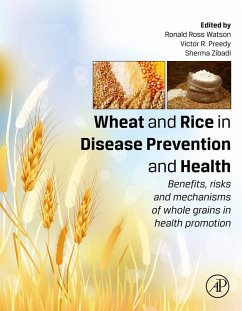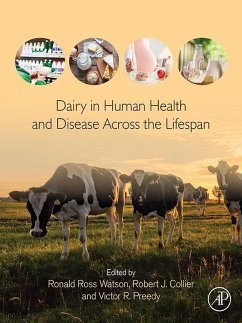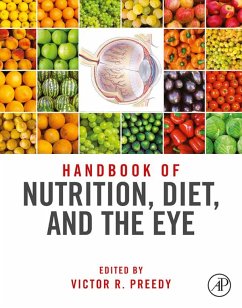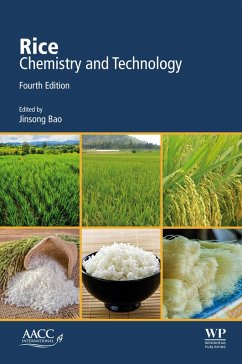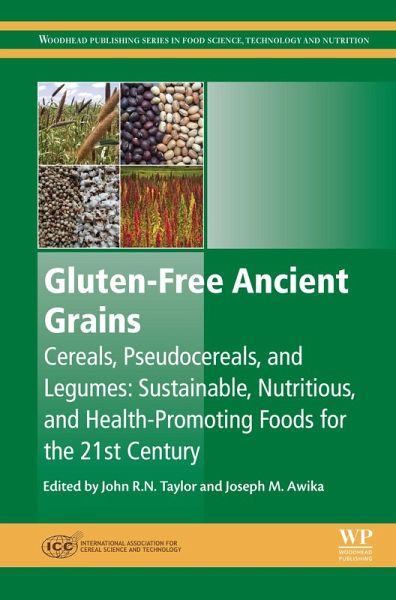
Gluten-Free Ancient Grains (eBook, ePUB)
Cereals, Pseudocereals, and Legumes: Sustainable, Nutritious, and Health-Promoting Foods for the 21st Century
Redaktion: Taylor, John; Awika, Joseph
Versandkostenfrei!
Sofort per Download lieferbar
135,95 €
inkl. MwSt.
Weitere Ausgaben:

PAYBACK Punkte
68 °P sammeln!
Gluten-Free Ancient Grains: Cereals, Pseudocereals and Legumes covers grains that are not related to wheat. This includes sorghum, the major millets - pearl, foxtail, proso and finger millet, as well as teff, the major pseudocereals - quinoa, amaranth and buckwheat, and emerging legume grains - lupin, cowpea, Bambara groundnut and marama beans. These are all characterized as gluten-free grains. The book provides key information on the sustainable production of these grains. Ancient grains are characterized by their ability to produce a crop under harsh environmental conditions where the major ...
Gluten-Free Ancient Grains: Cereals, Pseudocereals and Legumes covers grains that are not related to wheat. This includes sorghum, the major millets - pearl, foxtail, proso and finger millet, as well as teff, the major pseudocereals - quinoa, amaranth and buckwheat, and emerging legume grains - lupin, cowpea, Bambara groundnut and marama beans. These are all characterized as gluten-free grains. The book provides key information on the sustainable production of these grains. Ancient grains are characterized by their ability to produce a crop under harsh environmental conditions where the major cereals are not-sustainable or even fail. In order to meet growing food demand, and with water resources becoming scarce, this is a highly valuable quality. Chapters review the major grains, analyzing their production and manufacture processes and detailing their impact on long-term good health. Of interest to many people and organizations in the food production chain, this book will be of significant value to agricultural scientists, food company innovation and R&D managers, academic and food company nutritionists and dietitians and governmental and non-governmental health ministries and research institutes. - Provides a comprehensive overview of non-wheat grains - Reviews the manufacture and sustainable production of these grains, detailing their abilities to grow in harsh conditions - Analyzes the nutritional value of ancient grains and their health-promoting qualities
Dieser Download kann aus rechtlichen Gründen nur mit Rechnungsadresse in A, B, BG, CY, CZ, D, DK, EW, E, FIN, F, GR, HR, H, IRL, I, LT, L, LR, M, NL, PL, P, R, S, SLO, SK ausgeliefert werden.




